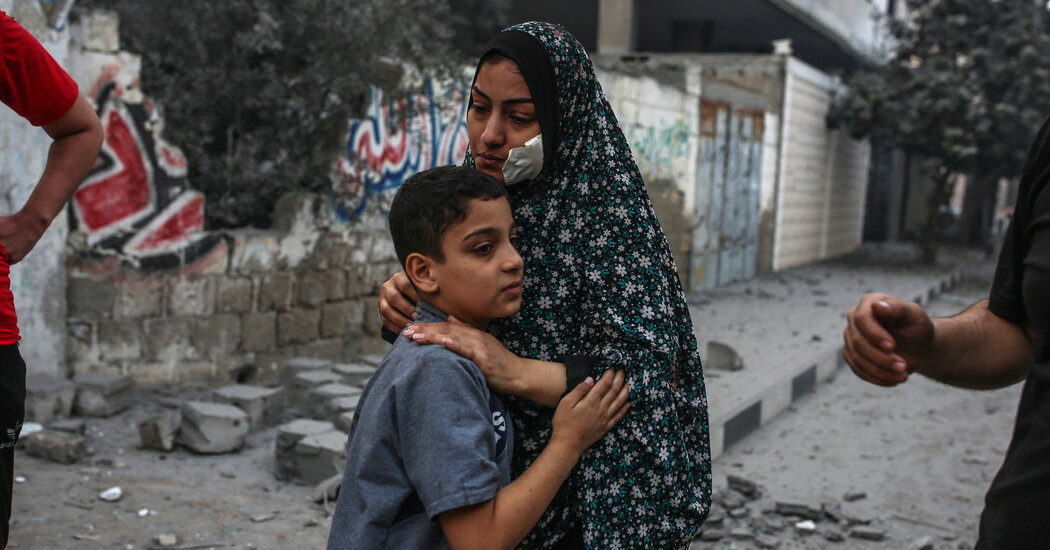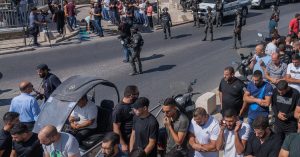
The children of Gaza are in need of some help
Gaza City: Demonstration and destruction of a humanitarian community inflicted upon Syrian civilians by Israeli military occupation and military assault
Houses and apartment complexes have been destroyed in Gaza City. The Rimal area of Gaza City has been damaged so badly that I can’t remember it. At least 326 children in the Gaza Strip have been killed since Saturday, according to the Ministry of Health here. On Tuesday and Wednesday, women and children from the extended family were killed in attacks. There was a smell of explosives in the entire strip. Yoav Gallant, Israel’s minister of defense, called us “human animals” and announced that the suffocating siege that Palestinians in Gaza have endured for more than 15 years would be tightened even further: The strip is now cut off from food, electricity and fuel.
No electricity means no internet or connection to the outside world. Raw sewage is seeping into Gaza’s streets; waste treatment facilities require electricity. The water supply has been cut. Driving south on Monday, I passed five United Nations schools-turned-shelters, so jampacked with displaced people that families spilled out into the yards. There is growing dread inside of me as I know the worst is still to come.
Many of the fighters who breached those walls are probably just a few years older than Ali; many of them were born during the second intifada. Their entire experience has been Israeli military occupation, siege and devastating military assault upon assault on an enclave of 140 square miles, with unemployment and poverty rates of approximately 50 percent. These are the conditions that shaped so many in Gaza, not a justification. Israel helped create these fighters by starving them of hope, dignity and a future.
Last week, as war broke out in my home, I was in Armenia, spending hours talking to people whose own lives have been wrecked by war. In September, thousands of people from Nagorno-Karabakh, an Armenian-populated enclave inside Azerbaijan, were driven out by Azerbaijan’s lightning military assault. In a crumbling, Soviet-era kindergarten hastily repurposed as a shelter, people told me about their overwhelming sense of loss. A man said, “Homeless, homeless, homeless.”
There was no surprise to Hamas’s attack. We have all been witness to peacemaking failing here. This isn’t just a crisis for peace activists but a failure on a global stage. Lately the whole notion of solving conflicts, containing violence through international rules and institutions, the international system itself, appears wholly inadequate to its task of protecting people and preventing wars.
Israel has scoffed at international law for decades by expanding settlements, annexing territory conquered in war, and suffocating the civilian population in Gaza through a 16-year blockade, with few repercussions. The United States and many other countries ignore the international courts. Vladimir Putin will probably avoid prosecution for his invasion of Ukraine. When Hamas slaughtered over 1300 Israelis, it had no interest in the fate of the liberal rules-based world order. Much of the world will view Israel’s unfolding and brutal retaliation — so far, more than 400 Palestinian children have been killed, according to the Palestinian health ministry — as justified.

